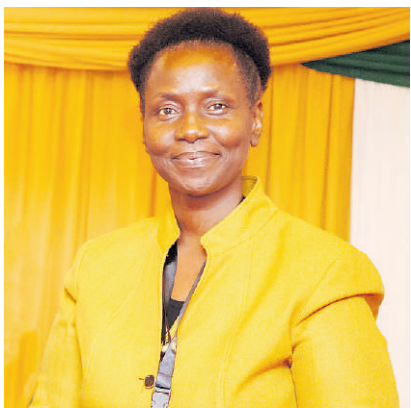

Judges work in a corrupt environment and some have to stand up to pressure from family members to manipulate decisions for bribes or other favours, a High Court judge has said in a book.
Judge Asenath Ongeri, a staunch SDA, paints the Kenyan bench as a cesspool, where corruption pressure emanates from all quarters.
In her book, The Making of a Judge, Ongeri says corruption is a major work hazard in the judiciary.
If not dealing with pressure from litigants wielding briefcases stuffed with loads of cash, then it’s a junior staffer hunting for bribes in judges’ names, the book says.
Judge Ongeri’s accounts come when pressure is building for radical action against alleged practice of flagrant bribery in the Judiciary in exchange for favourable outcomes.
The charge is led by former LSK president Nelson Havi, senior sounsels Ahmednassir Abdullahi, Paul Muite and Gibson Kuria.
They have not provided any proof of the allegations of corruption they have leveled against the Judiciary.
In the book, the judge recounts how years ago when she served as a magistrate, her father took a stranger to her and asked her to sway a judgement at a fee.
Ongeri says her father believed the stranger would train her on how to mint millions from the Judiciary.
“One day, while working as a magistrate, my father came to visit me with a stranger. It was a surprise visit,” she writes.
“My daughter,” she quotes her father as saying, “I have come with a friend who will tell you how to make money in the Judiciary.”
“I served them a cup of tea and we settled to have a conversation,” Ongeri says.
“There is a lot of money in the Judiciary,” her father’s friend said. “If you want to make money, appoint an agent to collect money on your behalf.
The agent will contact the litigants and negotiate on your behalf. He will bring you money and nobody will know about it.
I propose you appoint me your agent,” the man continued. “I was shocked at the proposal, the judge writes.
“My mind raced back to the time I was growing up in the village and the many stories we were told to teach us morals,” Ongeri says.
She says her belief that even when in the safety of one’s privacy, where no one else sees, God is all eyes and one must conduct their affairs with absolute integrity.
“I warned the stranger I was sorry to disappoint him. I told him I did the cases on behalf of God who was always watching and could not do such a thing,” she writes.
“From that day, everyone who approached my father to talk to me about the cases I was handling was told, “My daughter is a Christian, she doesn’t allow anyone to interfere with her work. She judges for God.”
I was greatly honoured by such remarks,” she writes. Her firm stance kept all her relatives at bay with regards to her work, shielding her from any efforts to influence her work. “As word spread on my stand, nobody ever came to talk to me about any case, through my filial associations.” With time, her father also got to commit his life to Jesus.
“My greatest honor came when I led my father to be baptised. Even children can be used to lead their parents to God,” Ongeri says.
She says litigants, mainly through advocates, confront judges with offers of hefty sums in bribes to procure favorable decisions. She recounts how she rejected a Sh50 million bribe from a lawyer when she served at the Nairobi city court earlier in her career.
Sh250,000 was taken to her chambers in a briefcase early one morning but she rejected it, threatened to jail the man and later reported the incident.
“You’re fully covered. Nobody will point a finger at you. All the paperwork has been finalised. Your cut is Sh50 million, but it’s negotiable, payable upfront,” the corrupt lawyer would tell her.
And if I wanted, the judge says, an account would be opened and money deposited pronto.
“He also
said if I wanted the money in a foreign country, an offshore account,
it could be done. As in, all contingencies had been taken care of.”












